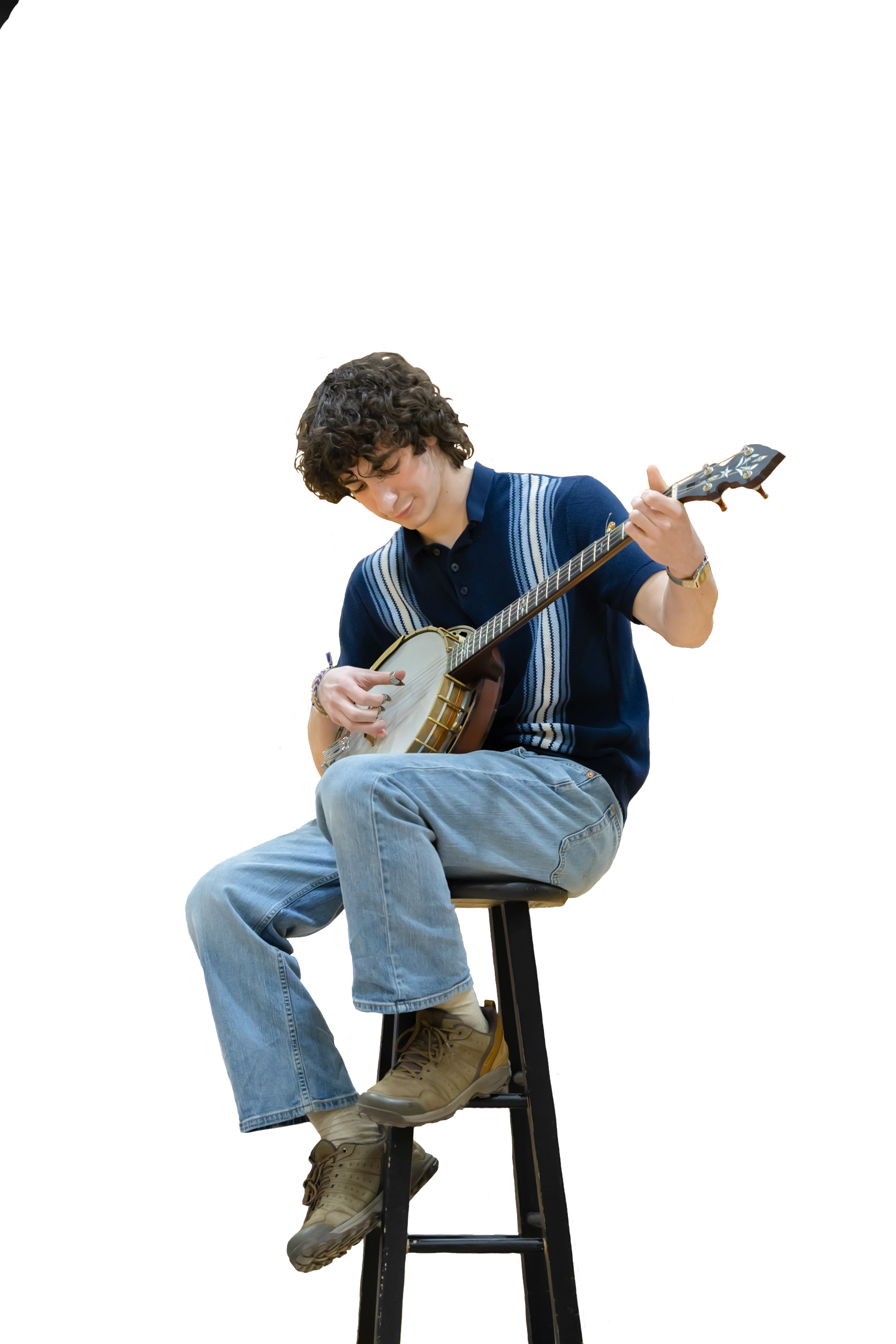Ever since the age of five, Nikolai Margulis ’25 has embraced music as a defining part of his life. His passion for the banjo has led him to hone his ability over the years, as well as engage in the musical community by coordinating a program with the International Bluegrass Music Association, becoming a signed artist of Prucha Banjos, and winning awards for his playing and compositions. Margulis is considering taking a dual–degree program between Harvard and Berkeley that would allow him to continue studying music while also exploring other paths in life.
What inspired you to start playing the banjo?
I grew up in Arkansas, and we had a farmer’s market every Saturday, and there was a guy there and [it seemed like] he lived in the Gilded Age pretty much. He wore corduroys and a button-down sweater vest with a little pocket watch and I thought he was the coolest guy and he played the banjo. So I asked my mom if I could take lessons. I took lessons with him for seven years in Arkansas. He played a style called classic banjo ... I didn’t get into [the style I play now] though, until I moved to Jersey and no one played [classic banjo]. I was gonna give it up, and my mom sent me to this banjo camp with adults, I was the youngest one there ... they all played the three-finger banjo, which is what most banjo players play now, and I got converted [to playing the three-finger banjo] there.
What work have you done for the Bluegrass Music Association?
I put together this program at the International Bluegrass Music Associations ... called the World of Bluegrass. It’s their annual festival in North Carolina, and you get all the stars down there [and it’s] where they give out awards. I put together some people who I knew would be up for it, like some of these big winners like Vocalists of the Year and stuff. And I asked them to kind of form a new band that would go play one set where people can request the songs. So as the songs are playing, the audience pays to request what the next [song is] gonna be and the highest bid gets to choose it. And so we raise money for their diversity programs as the International Bluegrass Music Association, and it’s also just fun because I get to hear bands that I’ve always wanted to hear that don’t exist, so it’s a win-win.
What was your journey in becoming a sponsored artist for Prucha Banjos?
I met the banjo maker Jaroslav Prucha a few years back in North Carolina. I’d grown up seeing heroes of mine like Russ Carson and Alison Brown playing his instruments and had always dreamt of playing one myself. Jaroslav and I got along great, and in a few months he approached me about making a custom instrument. We spent a few months designing a banjo specifically for my playing, and last fall I officially signed on as the youngest endorsing artist of Prucha Banjos. It’s a real beauty of a banjo, and I am [grateful] and proud to play it everyday.
How is playing the banjo different from other instruments?
When I started playing an instrument, I didn’t think about playing anything else. But the more that [I played, the more I realized] that the banjo, the way it’s played, is very based on its limitations. It doesn’t have much sustain, you have to just throw a bunch of notes out to give the impression of any chord, and you don’t get a lot of bass notes. And so I try to find ways to work around that, but now I often find myself having a little envy of pianos or guitars. But I’m happy to play the banjo.
What was your most memorable performance?
[Tony Trishka is] a real hero of mine. He invited me to come play [at his birthday party] and everyone was there: Steve Martin was there, [Ed] Helms ... from “The Office” [was there, as well as] Béla Flack, who’s one of my favorite banjo players ... it was really cool there just to see all these banjo players come together and celebrate.
What is your process when composing music?
When I sit down and take the banjo out of the cage, I just play stuff for ten minutes. I’d improvise and try and play things that I haven’t heard before and often an idea will come out of that that makes me feel something. And it’s like emotional problem solving [because] you throw your fingers down, they end up in some place that’s new ... The goal is to resolve it in a way that’s pleasing in some way, or it makes you feel something that you’d like to feel.
